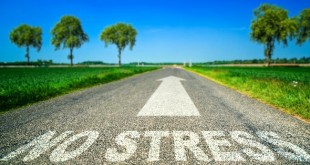The Problems With Intermittent Fasting
I am so incredibly honored to feature Brad Shepherd’s article today. Brad and his wife Kelli are the owners of Fooduciary. If you’ve never checked out their site, you’re in for a real treat. I fell in love Fooduciary and all that they stand for the moment I discovered it! They bring to the table a panel of experts (doctors, best selling authors, nutritionists, exercise specialists, health coaches, and more!) that regularly share a wealth of information. You’ll find everything you need to know on their site. Literally. They cover it all from GMO’s, Allergies and Asthma to Exercise, Gardening, Recipes and a lot more! Because Brad and his wife, Kelli are so passionate about the importance of clean eating, they wrote a FREE five day clean eating guide to help get you started!
Here’s a little sneak peak at Fooduciary’s philosophy (this should explain why I love them and their site so much!):
*Food Can Hurt or Heal
*Eat it Clean and Mostly Green
*Perfection not Required
*Your Body Can Tell You What to Do
*Functional Medicine Has the Answers
Take it away Brad….
Have Hormones? Intermittent Fasting Might Not Be Right For You
You’ve checked all the boxes: healthy eating, regular exercise, sufficient sleep, and a good relationship. The ideal life. So you’ll never have to worry about stress again, right? Ha! Don’t we wish!
Sadly, a life free of stress isn’t likely in the cards for many of us, if any of us. Stress will always be a part of our lives. The key is not to avoid it, but to learn to deal with it well and not to inflict more stress on ourselves than life already has in store for us.
One way many of us add extra stress to our lives is excessively worrying about what we eat, perhaps following restrictive weight loss plans that lead to stressful thoughts like “am I doing this right?” Or, “I’m so hungry, but no pain no gain, right?” One of those restrictive plans that has become popular lately is intermittent fasting (IF for short).
IF is a common topic and practice among those following a “paleo” diet or those in the Cross Fit community. But if you already have enough stress on your plate, or even if you’re feeling groovy, IF may not be something you want to take on. Let’s talk about why not.
The concept of fasting is surely nothing new. Scientific studies on its benefits have been around since the 1940’s, it’s found in every major religion’s texts, and surely goes all the way back to the beginning of human existence when food wasn’t available 24 hours a day like it is now.
Though as Marc David stated, “There are no historical references to fasting so as to look better in a bikini.”1
The benefits of intermittent fasting are certainly worth taking note. But this article is about the other side of the coin. How IF can be stressful on the body, where it can lead to dangerous situations, and why you may want to consider avoiding it.
Intermittent Fasting and the Central Nervous System
Fasting, ideally, happens every night while we sleep. This allows the body a period of time to focus on detoxifying and rebuilding rather than digesting food.
Your parasympathetic nervous system (the “rest and digest” branch) is at work during the night while you’re in an anabolic (“building up”) state.
It is suggested by many IF advocates that continuing the fast during waking hours may allow those benefits to continue and be a positive experience for many people.
Where trouble can occur is that during those conscious hours you become keenly aware of how hungry you are, perhaps fixating on your stomach, the clock, and when you’re next meal will come.
You’re sympathetic nervous system (the “fight or flight” branch) is fired up, feeling the stress, and is ready to help you flee you to safety.
The sympathetic nervous system is literally something our species wouldn’t exist without. It works to provide energy in short bursts as part of our innate escape from danger response.
But it’s not supposed to be steering the car all the time.
The problem is, even though we’re not running from tigers any more, many people are constantly dealing with stressors that over stimulate the sympathetic nervous system.
When fasting becomes a cause of stress, your cortisol levels shoot through the roof, adrenal glands become fatigued, next thing you know you’re tired, sluggish, cranky, gaining weight, and a danger to fellow drivers when you get behind the wheel!
(No joke. Each year during Ramadan, the annual Muslim practice of fasting from sunrise to sunset for an entire month, reports show decreases in daytime alertness, mood, wakefulness, competitive athletic performance, and increases the incidence of traffic accidents, not surprisingly, between 8am and 2pm.2,3)
Intermittent Fasting Can Affect Men and Women Differently
The issue of elevated stress during fasting is particularly concerning for women.
Low calories naturally lead to lower energy, induce stress and affect hormones in both men and women, but it happens faster in women.
Many women find that with intermittent fasting comes sleeplessness, anxiety, and irregular periods, among a myriad of other symptoms of hormone irregularities.
Fasting sends a message of, “No food! Be careful! By no means reproduce!”
For men, reproducing during famine would be a slight inconvenience. One more mouth to feed being the penalty for a night of fun (probably not his best performance though .
For women, the risks of reproducing during famine are much more severe. It increases the likelihood of dying during childbirth or nursing, as well as elevates the risk of birth defects.
Restricting calories signals famine to a woman’s body and decreases fertility (alters hormones) until food supplies return to levels that can support reproduction.
Or, in the opposite direction, it signals, “Be fertile quickly (early puberty), reproduce quickly, and get out of the way (die)”.
[This is a topic for another post, but this is also the reason that long term low-fat diets are so detrimental to women’s health, where fat is so essential to healthy reproduction.]
Some women counter this argument stating that they actually feel more energy during fasting phases. There’s an evolutionary explanation for this also.
One of the effects of fasting is the stimulation of hypocretin neurons, small particles in the brain that prevent the body from falling asleep.
Why would your body turn these on? If you’re hungry, well then damn it! You better get out of bed and go find some food!
We need to make a careful distinction between feeling a burst of energy and true well-being.
Fasting = Stress
Bottom line, fasting is a stressor. Period. It just is. Even the avid proponents of intermittent fasting agree.
But what they do is barely stick a little asterisk at the end of their blog posts saying: *people who are stressed should probably not fast.
Probably is right. And here’s a major consideration for both women and men.
Commonly cited benefits to fasting are improved insulin sensitivity, bodyweight and body fat, blood pressure, blood lipids (for men only4), heart rate, and glucose tolerance (again, for men only4).
All of these benefits can be achieved by exercising, with none of the stressors of fasting.5,6
And while research on animals regarding fasting have consistently found these benefits to be true, human research is much more scarce and inconsistent, showing both benefits and risks.
Furthermore, the effects of skipping breakfast in particular have been extensively studied.
Overall, the evidence points to regular breakfast consumption improving cognitive function, memory, and nutrient status.
Skipping breakfast has been shown to decrease post-meal insulin sensitivity and increase LDL-cholesterol7.
This data points to the possibility that the body is “metabolically primed” to eat a meal soon after an overnight fast.
Also, working out while fasting, an approach commonly encouraged by IF proponents, has been shown to increase muscle damage.8
In another study conducted on exercising during fasting, cortisol levels rose by 105% by the end of the training routine, where the control group who had consumed a healthy combination of protein and carbohydrates within four hours prior to the workout saw no increase in cortisol levels.9
Back to evolution, when you work out hungry, your body’s doing it’s job by firing up the sympathetic nervous system and helping you flee the chasing tiger.
Intermittent Fasting, the Bottom Line
To be clear, the message isn’t that fasting of itself is bad and that no one should ever do it.
Fasting can be a beautiful thing that can lead to intense spiritual experiences as well as physical highs.
If you feel good doing it, feel good about yourself, or find it as a way to draw closer to the divine or gain insight to your own life, by all means pursue it.
But there are risks to consider. Look at the options, be honest about your priorities, and listen to your body with love and kindness.
Is fasting worth trying if one is overweight and wants to improve her metabolic markers, and has been frustrated with results so far? Maybe.
What if you’re of normal weight, or a light sleeper? Or if periods become irregular, acne appears, or the appetite becomes intense or disappears altogether?
There are certainly alternatives to keep in mind.
All of us, men and women, need to make conscious, intent decisions with our mental, physical, and emotional health at the forefront of our minds. We’re all different.
Just because IF is popular and works for some people doesn’t mean it’s the right thing for you.
If you’ve already got enough on your plate, even if life is good but especially if you’re already stressed, remember that the biggest benefit you can get from what you eat comes from how you think about what you eat.
Bottom line: Relax, exercise doing activities you enjoy, have a bite of dessert, and send a clear signal to your brain and body that life is good.
You’re happy. There is plenty of good healthy food around. There are no tigers chasing you. Smile.
Sources
1. Marc David, founder of the Institute for the Psychology of Eating
2. Roki R, et al. Physiological and chronobiological changes during Ramadan intermittent fasting. Ann Nutr Metab. 2004;48(4):296-303. Epub 2004 Sep 24.
3. Bener A, et al. Road traffic injuries in Al-Ain City, United Arab Emirates. J R Soc Health. 1992 Dec;112(6):273-6.
4. http://www.ncbi.nlm.nih.gov/pubmed/15833943?dopt=Abstract
5. Lakka TA, Laaksonen DE. Physical activity in prevention and treatment of the metabolic syndrome. Appl Physiol Nutr Metab. 2007 Feb;32(1):76-88.
6. Carrol S, Dudfeld M. What is the relationship between exercise and metabolic abnormalities? A review of the metabolic syndrome. Sports Med. 2004;34(6):371-418.
7. Farshchi HR, et al. Deleterious effects of omitting breakfast on insulin sensitivity and fasting lipid profiles in healthy lean women. Am J Clin Nutr. 2005 Feb;81(2):388-96.
8. Baty JJ, et al. The effect of a carbohydrate and protein supplement on resistance exercise performance, hormonal response, and muscle damage. J Strength Cond Res. 2007 May;21(2):321-9.
9. Bird SP, et al. Liquid carbohydrate/essential amino acid ingestion during a short-term bout of resistance exercise suppresses myofibrillar protein degradation. Metabolism. 2006 May;55(5):570-7.
Meet Brad Shepherd from Fooduciary
Brad Shepherd is the co-creator of Fooduciary.com. Through Fooduciary, Brad and his wife, Kelli, teach others how food impacts their health not just today but in the future.
He is inspired daily by hearing of readers embrace a healthy lifestyle and helping those with similar questions that he once had, the best part being when someone realizes the power they have over their own health outcomes.
To help others make a gentle transition to healthy eating, Brad happily shares an introductory guide called Five Days to Clean Eating.
 Primally Inspired Real food, Natural Remedies, Holistic Living
Primally Inspired Real food, Natural Remedies, Holistic Living












By intermittent fasting do you mean eating during an 8 hour window each day, and fasting 16 hours each day?
Intermittent fasting can look like a lot of different things. It’s alternating between a time of eating and time of fasting – some people do 24 hour fasts one or two times a week. Others could do like you mentioned and eat 8 hours out of the day and then fast for 16 on a daily basis or maybe just a few times a week. I’ve heard of others eating normally for 5 days out of the week and fasting for the other 2.
Great post! I have been wary of IF for a lot of people (myself included). One thing this article didn’t touch on is blood sugar, but that is critical component of overall health as well. If you have adrenal issues, you are almost guaranteed to have blood sugar issues, as those two systems are very tightly connected. IF can be detrimental to those who are dealing with those two issues. I know a lot of people who do IF and seem to be thriving, however, it is important to assess the risks and the benefits before starting. This article is a great place to start. Thanks for sharing!
Thanks for your input, Jessica!
I partake in a Nutritional Cleanse of 2 consecutive days at least once a month. By nutritional I mean that the cleansing juice is 100% natural, with raw minerals and loaded with nutrients so that the body does not get depleted of nutrients and run down. I also integrate several small wafer snack throughout the day so that the blood sugar stays level. I look forward to my cleanses and feel light, peaceful and calm. I have benefited from them greatly both in weight loss, mental clarity, and in curbing cravings for sugars. So, not all cleanses are created equal and it is, in my opinion, very necessary for the body.
I tried out IF with a feeding 8 to 10 hour window each day for over a year. While my morning hunger went away, which is convenient in a busy stressful life, my stress response started to go crazy. I was ok in the mornings, but by evening I had a pounding heartbeat, no libido, and ED. Changes to my life to reduce overall stress helped, but the symptoms only completely cleared up when I started eating breakfast again.
I didn’t even feel that strstressed out most of the time, it was bizarre. I liked IF because I literally didn’t feel a need to eat all morning but the effects at the end of the day were just unbearable.
Everyone is an experiment of 1. Some may do ok on IF, they just need to be aware that these things can happen on IF.
DB, your experience is very, very similar to mine. Thank you for sharing!
Wow! This is the first thing I’ve read that explains my experience. I’ve read 4-5 book on IF and tried each different style. At the end of it all I determined that this is just not for women. I decided to be kind to my body and stop trying to beat it into submission. That was the best decision. My naturopath told me if I ever tried fasting again to drink bone broth. It has everything your body needs and it won’t feel stressed.
So happy to hear this, Debbie! That’s a great suggestion to drink bone broth, too!